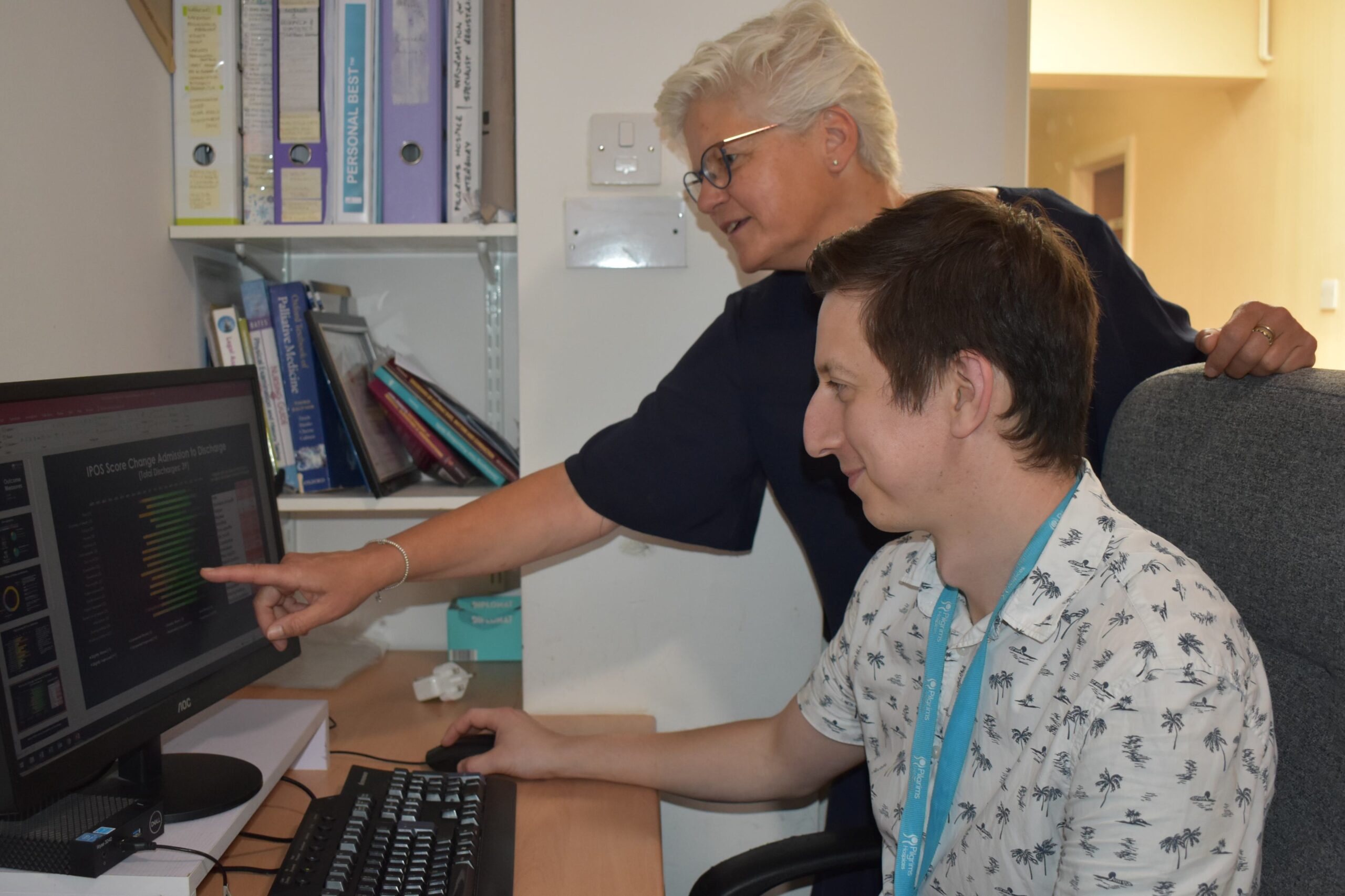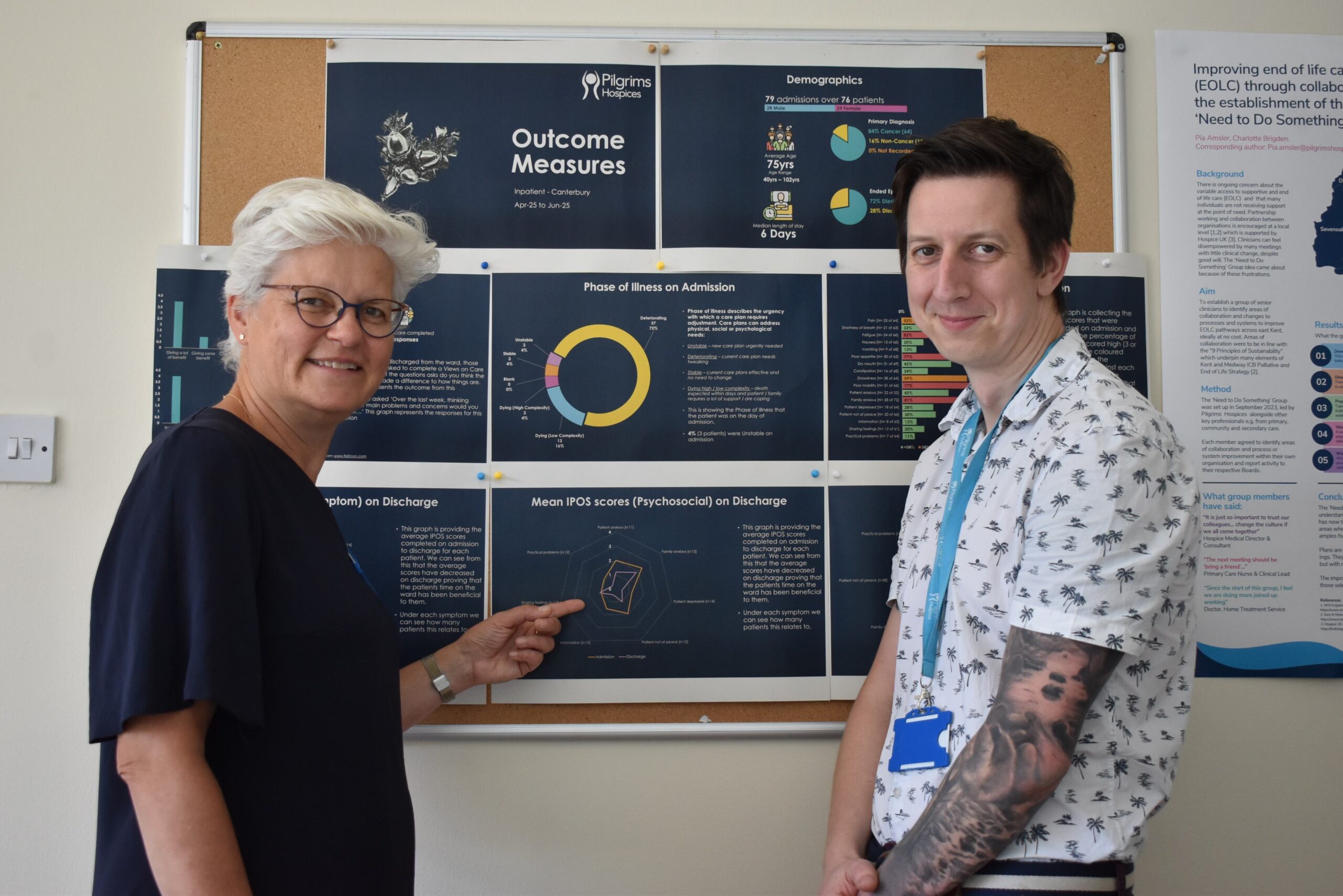Putting patients first: How data is shaping better care at Pilgrims

At Pilgrims Hospices, every patient matters. But how do we make sure that care is always tailored to the individual? The answer might surprise you – it starts with listening, and it’s powered by data.
We spoke to Dr Pia Amsler, Pilgrims’ Medical Director, and Aaron Salter, our Business Intelligence Lead, to find out how their partnership is helping us understand and improve the experience of people in our care.
What matters most to our patients and their families?
This is one of the first questions we now ask patients – and it’s at the heart of an innovative approach that’s helping Pilgrims ensure that the patient is at the centre of everything we do.
“This isn’t just about symptoms or checklists,” Pia explains. “It’s about understanding what is most important to each individual person at that moment in their life. That’s what helps us create meaningful care plans and support people in the ways that matter most.”
With Pia’s clinical leadership and Aaron’s technical expertise, Pilgrims has introduced and further developed a series of outcomes measurement tools that gather insights from patients, and also their families or care givers, throughout their time with us – whether they’re staying on one of our hospice wards or receiving support at home.
The power of patient voices
“We ask every patient three simple questions,” says Pia. “What is important to you? What matters most right now? And what have been your most pressing concerns over the last few days?”
Their answers are recorded and become part of their care plan. Over time, the changes in these responses help us understand the impact of our care – not just physically, but also addressing emotional, social, practical and spiritual domains.
For Aaron, it’s about turning those insights into action:
“We collect and analyse all of this information and create easy-to-understand reports,” he says. “These help our teams reflect, adapt, and improve. We’re now able to track how a patient is feeling when they come to us – and how they feel after receiving our support. It’s incredibly rewarding to see those changes and know our care is making a real difference.”
One example is the use of “radar charts” – visual charts that map how a patient’s concerns are changing across different areas of wellbeing. “We can see real-world improvements,” says Aaron. “It’s amazing when data drives change.”
Wider impact beyond Pilgrims
“We’re also now able to share this insight with our sister hospices,” adds Aaron. “That means the data we’re collecting isn’t just improving care here – it’s contributing to a much bigger picture, helping shape and enhance services across the whole sector.”
Changing culture, shaping services
This new approach has sparked a wider cultural shift across Pilgrims. From nurses and healthcare assistants to social workers, therapists, and spiritual care staff, everyone has a voice.
A group of staff known as the Champion Group has been instrumental in shaping how outcome data is used and shared. They’ve helped trial and enhance new tools, voted on how to improve reporting, and made sure every role is represented.
“It’s truly democratic,” says Pia. “It’s not just about the voices of a few – it’s about every part of our team working together to improve the journey for every patient.”
“In the end,” says Pia, “this is about making our strategy a reality – delivering care that’s genuinely person-centred. When we understand people’s goals, their fears, and their hopes, we can offer care that feels personal, compassionate, and right.”




